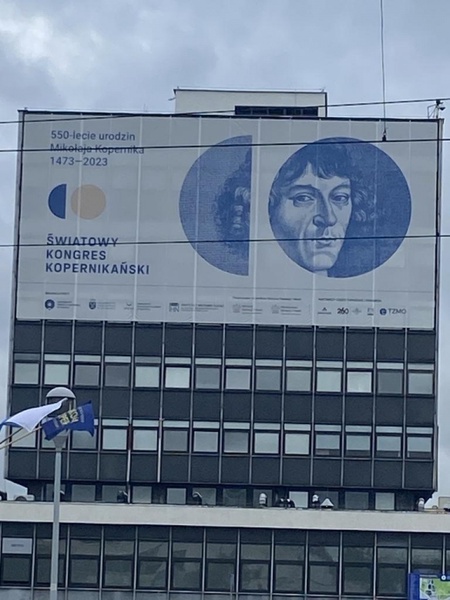Professor Karin Friedrich from the Department of History joined celebrations in Poland to mark 550 years since the birth of Nicholaus Copernicus.
She attended the World Copernicus Congress 2023 at the Nicholaus Copernicus University in the city of Toruń, where the astronomer was born.
Copernicus (1473–1543) was a mathematician and astronomer who proposed that the sun was stationary in the centre of the universe and the earth revolved around it, starting of a change in the way the world was viewed which led to him being regarded as the initiator of the Scientific Revolution.
Professor Friedrich was invited to the ‘Cultural History section’ of the congress to investigate the memorial culture which Copernicus’s legacy produced.
In the past, a particular battle has been fought about his national identity. During Copernicus’s time, Toruń belonged to the Polish crown until 1793 when the city was forcefully annexed by King Frederick William II of Prussia. It rejoined Poland after the reconstitution of an independent Polish state after World War One, but suffered much under Nazi occupation (1939-45).
In her paper “Copernicus – a German hero?” Professor Friedrich analysed the reception of Copernicus in German national historiography from the Enlightenment to the 20th century. The section also featured contributions from historians, anthropologists, historians of science and literary scholars from around the world, including Pamela Smith (Columbia University, NY), Rens Bod (Amsterdam), Stanisław Roszak (Toruń) and Pietro Daniel Omodeo (Ca’Foscari, Venice), among others.
The latter was once a guest fellow of the Centre for Early Modern Studies and the Museum and Special Collections. As a result, with Friedrich, he edited a book on Duncan Liddel (1561-1613) and the Liddel library which is held by the Museum and Special Collections at Aberdeen.
The University of Aberdeen remains only one of three libraries in the world to hold a handwritten copy of Copernicus’s “Commentariolus”, written in 1514 but not published during his lifetime. Aberdeen also holds a first (Nuremberg, 1543) and a second (Basel, 1566) edition of Copernicus’s De revolutionibus orbium coelestium. The famous “Commetariolus” was manually inserted by Liddel in to the second edition of 1566.
During her appearance at the Congress, Professor Friedrich was able to communicate the importance of Aberdeen’s Copernicana to a wide international audience.
Details of the Congress can be found here and Professor Friedrich’s work featured in the Polish political magazine Polityka.


